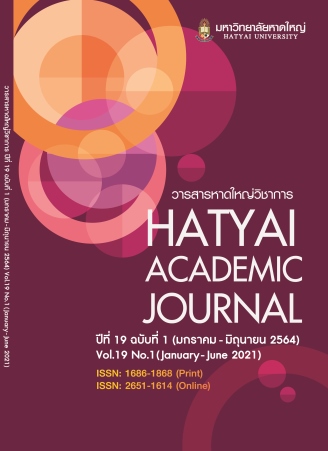“On Education”: Reading Einstein’s Ideas about Education
Main Article Content
Abstract
As Einstein’s ideas are suffused with deep insights and intuitions with lofty aspirations and ideals, simply reading his text “On Education” may reflect the readers’ personal biases and lack of understanding confirmation. The review of available works of literature has paved the way for the occurrence of the applied method of the study to make available confirmation before grasping idea components and allowed fruition of these following revealed ideas: 1) Einstein is certain that his ideas about education expressed as a speech given to the 300th university celebration occasion are reliable and convincing as that of those educational experts in the past; 2) Youth’s spirit can and should be instructed; 3) Motivating students should be done with care as it holds double sides of a sword; 4) The training of the mind is rather more important than that of language or science; and 5) General knowledge, not specialized fields, should be emphasized more. Also, such a result brings to light the applicability of the applied method from reading other difficult texts to the teaching of reading courses and evaluating readers’ understanding from the reading.
Article Details
All published articles are evaluated by three qualified peer reviewers from various institutions through a double-blind process, where reviewers do not know the authors’ identities and authors do not know the reviewers’ identities. The content and articles in the Hatyai Academic Journal reflect the authors’ views only and are neither the opinions of the editorial board nor the responsibility of Hatyai University. The Editorial Board of the Hatyai Academic Journal allows articles to be reproduced for academic purposes, on the condition that the original source is clearly cited.
References
Baskin, W. (1966). Classics in education. New York: Philosophical Library.
Crusius, T. W., & Channell, C. E. (2016). The aims of argument: A text and reader (8th ed). New York: McGraw-Hill Education.
Einstein, A., Seelig, C., & Bargmann, S. (1973). Ideas and Opinions by Albert Einstein: Based on Mein Weltbild. London: Souvenir.
Hayes, D. (2007). What Einstein can teach us about education. International Journal of Primary, Elementary and Early Years Education, 35(2), 143-154. doi: 10.1080/03004270701311986
Hegelund, S., & Kock, C. (2003). A good paper makes a case: Teaching academic writing the Macro-Toulmin way. Teaching Academic Writing in European Higher Education, 2, 75-85.
Kurland, D. (2000). Three ways to read and discuss texts. Retrieved from http://www.criticalreading.com/ways_to_read.htm


